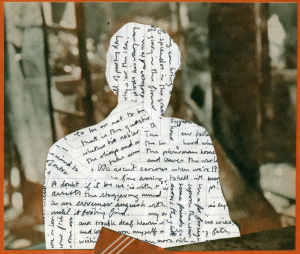By Molly Worthen
Contributing Opinion Writer
LATE one night this spring, Justin Snider, an assistant dean at Columbia University, was riding the uptown No. 2 in Manhattan when the train ground to a halt. After about 15 minutes — with little information about the delay and no cell service — everyone in the car was getting restless. Suddenly, inspiration struck. “I asked neighboring passengers if they wanted to hear some Shakespeare, and no one objected,” Mr. Snider told me.
He had memorized Hamlet’s “To be or not to be” speech more than 15 years earlier, to pass the time on a cross-country bike trip. “I was definitely nervous because I’d never performed publicly before,” he said. Although his jaded audience neglected to clap when he finished — they did applaud when the train started to move again — Mr. Snider was pleased that he didn’t forget a line.
The soliloquy was fixed in the architecture of his brain, ready to serve in a moment of boredom or underground anxiety. It’s no coincidence that Mr. Snider has asked students to memorize poetry many times in his career in education.
Since ancient times, humans have memorized and recited poetry. Before the invention of writing, the only way to possess a poem was to memorize it. Long after scrolls and folios supplemented our brains, court poets, priests and wandering bards recited poetry in order to entertain and connect with the divine. For individuals, a poem learned by heart could be a lifeline — to grapple with overwhelming emotion or preserve sanity amid the brutalities of prison and warfare.
Yet poetry memorization has become deeply unfashionable, an outmoded practice that many teachers and parents — not to mention students — consider too boring, mindless and just plain difficult for the modern classroom. Besides, who needs to memorize when our smartphones can instantly call up nearly any published poem in the universe?
In fact, the value of learning literature by heart — particularly poetry — has only grown. All of us struggle with shrinking attention spans and a public sphere that is becoming a literary wasteland, bereft of sophisticated language or expressions of empathy beyond one’s own Facebook bubble.
Image credit: Anthony Gerace/NYT

